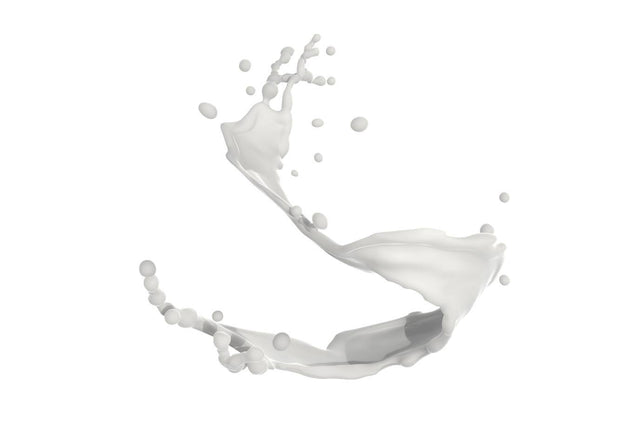MILK
Mistreatment, chemicals, toxins, industrial lobbying...
the milk you drink is often associated with controversial issues.
but know that the production of organic milk is growing and
it is estimated that in a few years its offer will increase considerably.
yes, the price will be more expensive: according to experts, this type of production
can increase the final price by up to 50%, but a survey indicates that
the consumer is willing to pay more for that product
higher quality and more ethical.
but, after all, what is an organic milk?
-the animals must remain free in the pasture for as long as possible
(the minimum established by regulation is six hours a day)
-shade and water must always be available
-the pasture must be free of pesticides
-food supplements must be composed of at least 85% organic products
-no growth additives, appetite stimulants and any transgenic food
-Vaccines determined by law are maintained, but health treatment is preferably done with phytotherapy and homeopathy
-also cannot antibiotics, hormones and vermifuge
(if there is a need to treat the cow with antibiotics, it must be taken out of production)
-in organic production, calves suckle from their mother for the first few weeks
(the weaning process can be helped by flower remedies, which calm mothers and children)
in time: a study published in 2012 in the British scientific journal "journal of the science of food and agriculture" revealed that levels of some nutrients, such as proteins and omega 3, are higher in organic milk.
this milk is worth it, isn't it?
sources:
São Paulo leaf
law 10.831/03,
CPRA (Paraná reference center in agroecology)
embrapa cerrados
the milk you drink is often associated with controversial issues.
but know that the production of organic milk is growing and
it is estimated that in a few years its offer will increase considerably.
yes, the price will be more expensive: according to experts, this type of production
can increase the final price by up to 50%, but a survey indicates that
the consumer is willing to pay more for that product
higher quality and more ethical.
but, after all, what is an organic milk?
-the animals must remain free in the pasture for as long as possible
(the minimum established by regulation is six hours a day)
-shade and water must always be available
-the pasture must be free of pesticides
-food supplements must be composed of at least 85% organic products
-no growth additives, appetite stimulants and any transgenic food
-Vaccines determined by law are maintained, but health treatment is preferably done with phytotherapy and homeopathy
-also cannot antibiotics, hormones and vermifuge
(if there is a need to treat the cow with antibiotics, it must be taken out of production)
-in organic production, calves suckle from their mother for the first few weeks
(the weaning process can be helped by flower remedies, which calm mothers and children)
in time: a study published in 2012 in the British scientific journal "journal of the science of food and agriculture" revealed that levels of some nutrients, such as proteins and omega 3, are higher in organic milk.
this milk is worth it, isn't it?
sources:
São Paulo leaf
law 10.831/03,
CPRA (Paraná reference center in agroecology)
embrapa cerrados



0 Comments
There are no comments for this article. Be the first one to leave a message!